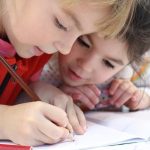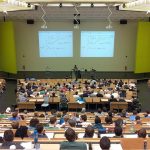The COVID-19 pandemic has brought major changes to the way education systems function. The changes affected almost 1.6 billion students in more than 190 countries. The impact of the pandemic has exacerbated pre-existing educational disparities, depriving a significant proportion of students (especially those in the poorest and most vulnerable groups) to access to quality education. On the other hand, the pandemic has served as an incentive to accelerate innovation in education.
The COVID-19 pandemic has brought to the fore the importance of the discussion around learning “21st century skills” (or “soft skills”). The skills of the 21st century are universal, not limited to any particular field of activity – competencies associated with the ability to think critically and creatively; with interaction with others and social participation; with self-regulation and self-organization; as well as everyday basic knowledge of relevant areas of life (finance, ecology, health, etc.).
These skills facilitate continued learning and rapid recovery in times of crisis. 21st century skills (also called transversal skills) are life skills that can be widely used in a variety of settings and are independent of specific jobs, tasks, educational subjects and professions.
Negative consequences for learning affect both short and long term educational outcomes. Studying the degree of influence of 21st century skills on educational outcomes in the context of overcoming the consequences of a pandemic will allow planning measures to compensate for losses and minimize risks, help develop recommendations for teachers and parents to support students during this period, give an accurate understanding of which skills are priority and the development of which competencies within schooling and beyond need to be given the most attention.
As part of the work carried out by the Center for International Cooperation for the Development of Education in 2022, approaches to measuring 21st century skills were studied and methods for measuring 21st century skills in schoolchildren were developed, which were tested in four countries. In parallel, changes in the educational process and ways to resolve the educational crisis in different countries associated with the COVID-19 pandemic were studied. Based on the results of approbation and research, recommendations were developed for the further use of these methods.
The purpose of the study is to evaluate the correlation between the development of skills of the 21st century and the educational achievements of learners in the context of the transformation of the educational process in countries with different levels of socio-economic development, using the example of educational features associated with the COVID -19 pandemic.
Research objectives
- Determine the level of students’ interest in classes based on communication skills in a mathematics lesson.
- Determine the level of student’s interest in activities based on collaboration skills in a mathematics lesson.
- Determine the level of students’ interest in creative activities in a mathematics lesson.
- Determine the level of students’ interest in activities based on critical thinking in a mathematics lesson.
Description of the research tool
The tool consists of three questionnaires, developed in relation to various parameters of the educational environment associated with the COVID-19 pandemic.
A questionnaire for students for 4K Skills in mathematics and a questionnaire for in-depth study of the critical thinking construct.
A questionnaire for teachers regarding the implementation of collaboration in the educational process.
Each questionnaire in the set has its own content and structural features, designed to get a comprehensive view of the educational process (through the eyes of the student and the eyes of the teacher). Such an approach to diagnostics in the field of education is seen to be effective as it provides a chance to acquire more reliable information about the course and specifics of education, make meaningful pedagogical and administrative decisions, and outline the best ways to improve the educational process.
The methodological toolkit for a comprehensive study of the correlation between the development of 21st century skills and educational achievements of students includes the possibility of using the following data collection methods:
- a questionnaire survey of agents of the educational process
- methods of statistical and psychometric data processing
- an observation method.
Each questionnaire includes a description of tasks for assessing these aspects and criteria for interpreting the results of tasks performed by research participants.
Student questionnaire for the study of 4K skills in relation to mathematics
The 16-point student questionnaire is based on 4K skills. Four key factors in the questionnaire are the following:
The level of students’ interest in activities based on communication skills in a mathematics lesson (communication).
The level of students’ interest in activities based on the skills of working together in a mathematics lesson (teamwork/collaboration).
The level of students’ interest in creative activities in a mathematics lesson (creativity).
- The level of students’ interest in activities based on critical thinking in the mathematics lesson (critical thinking/problem solving)
The questionnaire consists of 16 questions with 4 questions for each scale.
Students’ questionnaires for an in-depth study of the critical thinking construct
Critical thinking is the process of evaluating the reliability, accuracy or value of information, the ability to seek and find the reasons for certain actions.
The questionnaire consists of 30 questions that are related to 7 stories.
Questionnaire for teachers regarding the implementation of collaboration in the educational process
Teachers use different teaching strategies. The purpose of this questionnaire is to find out more about the reasons why teachers prefer to apply or implement one of the strategies – collaborative learning (collaboration). To get an accurate picture of these reasons, it is critically important to know what we hear from teachers who do or do not use collaborative learning. The knowledge gained will help us develop more effective classroom teaching methods and professional development programs for teachers. It will also help us provide better quality additional services to teachers if they are needed.






